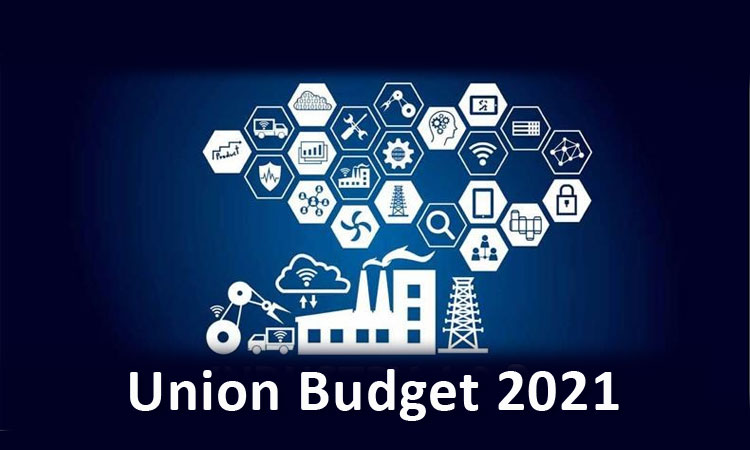Sugatsune introduces Swivel Torque Hinge HG-S for smooth…

Union Budget 2021| MSME SECTOR | Technology & Finance to MSME
The Union Budget 2021 has to make efforts to power the development of the MSME SECTOR (Micro, Small and Medium Enterprises) by providing them access to the required credit and adopting the latest technologies. According to government data, India has close to 6.8 million Udyog Aadhar registered MSMEs and another 63 million MSMEs. As per an estimate, currently, there are close to 30 Indian unicorns, and 18 out of those 30 unicorns have significant foreign direct investments. The MSMEs constitute almost 45 per cent of the manufacturing output, 95 per cent of the number of industrial units, 40 per cent of exports, and employ nearly 110 million people to make them the largest source of employment after the agriculture sector.
It is an established fact that the MSME sector is the backbone of the Indian Economy. MSMEs drive entrepreneurial development and diversification of the industrial sector. Furthermore, they provide depth to the industrial base of the economy. MSME units generate employment opportunities while the capital cost per employee is low. Over time MSME finance’s scope has increased with the services sector dominating the MSME and MNCs outsourcing their requirements to Indian service providers.
The Coronavirus pandemic has immensely ravaged global economies. And it’s the MSMEs that have borne the maximum brunt of this devastation leading to some of them shutting shop on account of lockdown measures, and the labour returning to their respective native places further compounding the problem. In spite of generally focusing on innovation, several start-ups tend to fail due to funding crunch, colossal tax burden, rigid compliances, and lack of technological advancements. While keeping this in mind, the Union Budget 2021 should make efforts to enable the development of MSMEs by providing them access to the required credit and adopting the latest technologies. Such measures can help start-ups and enterprises in the MSME sector to reap enormous benefits from automation and tech interventions in this ever-evolving digital world.
Frequently, while operating MSMEs, customer service tends to suffer from functional discrepancies. The policymakers have to make provisions to leverage such technologies to create tools and platforms that automate customer service operations—for instance, using virtual assistants to disseminate knowledge as well as support through Natural Language Processing (NLP) to serve customers consistently at a much lower cost.
The authorities should pay attention to employing technologies that can be used to upskill or reskill the workforce employed by India’s MSME sector. It is important to note in this regard that the rural workforce makes up almost 20 per cent of the total workforce in this segment, and they are primarily involved in performing mundane activities. Moreover, appropriate application of AI and similar technologies can automate risky and repetitive activities. Additionally, it can also help upskill 20 million of the staff for higher value-added activities. Specialised tech centres can be set up and operated by the government and industry groups to equip the workforce with the required skills and perform AI-empowered hybrid jobs. These state interventions have several upsides like increased earning potential which should pave the way towards a strong economic growth of the MSME sector.
Prime Minister Narendra Modi’s Digital India initiative has provided a sufficient impetus to technological adoption. It’s evident that the MSMEs will have to deal with the impact of the pandemic for some more time to come. The path ahead for them is to transform how they operate and function. Hence, it is essential the MSMEs incorporate digital technologies into their functioning to stay in business and remain competitive in the post-pandemic world. So, it makes it imperative for the government to wake up to this call and initiate measures to empower the MSMEs to go for more extensive technological adoption.
Such measures are intrinsic for the growth of the MSME sector as it not only contributes significantly to our economy but also employees a significant chunk of the population. Recently, the MSME minister, Mr Nitin Gadkari, the MSME sector contributes nearly 30 per cent to the national GDP and 48 per cent to our export. It is not at all surprising that the implementation of GST had a significant impact on this sector. GST implementation led conflating close to 17 taxes into one, thereby simplifying the entire taxation process and streamlining this unorganised sector. Moreover, it has enabled MSMEs to channelise their resources more productively. MSMEs came under the umbrella of Digital India and cut down their sole reliance on private finance options to seek credit. Now, many banks and fintech platforms have started offering digital banking and payment solutions that have empowered MSMEs by making their processes more transparent and efficient.
The ongoing Covid-19 pandemic has significantly increased the adoption of digital payments among MSMEs in India. As a result of the government’s efforts and consumer’s apprehension about using cash, digital modes have gained momentum. A sectoral report by payment gateway Instamojo, ‘Indian MSME Impact Report, 2019’ said that 20 per cent of MSMEs have seen the value in customer preference for digital payment technology, data security and synchronisation. However, in spite of the encouraging initiatives and an increase in digital adoption, MSMEs are yet to realise their full potential. Unfortunately, there are still several challenges that persist and must be overcome by the MSMEs:
However, if we want a new trend to penetrate any sector, it is imperative that the stakeholders should be completely aware of its benefits. Fortunately, the government and the regulatory bodies such as the Reserve Bank of India and NPCI have taken remarkable strides in offering digital benefits to MSMEs.
In spite of that many MSMEs have not digitised as they lack resources and the right solutions or incentives and are not completely aware of the value such solutions provide. In order to overcome this inhibition, many banks and payment players are taking initiative to educate the merchants. It’s important to know that if India wants to bring about the next wave of growth in MSMEs, these initiatives need to penetrate deeper into Indian geographies, especially into Tier-III and IV markets.
Finally, concluding this article, I must say that for financial inclusion to be achieved, it is extremely important that MSMEs are not left behind in the journey towards ‘digitisation’. Although there are initiatives and policies in place that can be beneficial to the small and medium-sized merchants, but to make sure that the entire ecosystem benefits from it, every stakeholder – whether banks or other payment players, must play its role.
Article by Arijit Nag
Arijit Nag is a freelance journalist who writes on various aspects of the economy and current affairs.
Read more article of Arijit Nag









